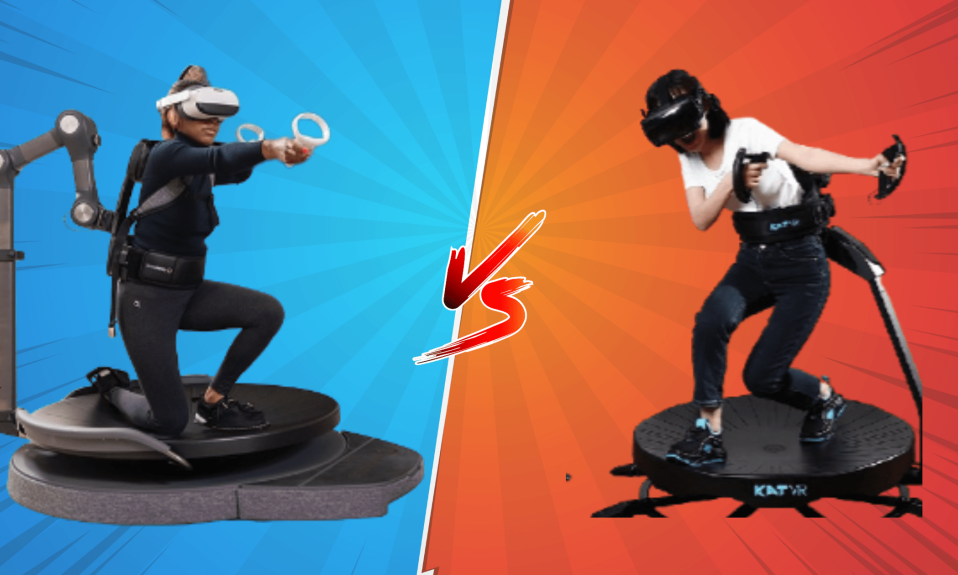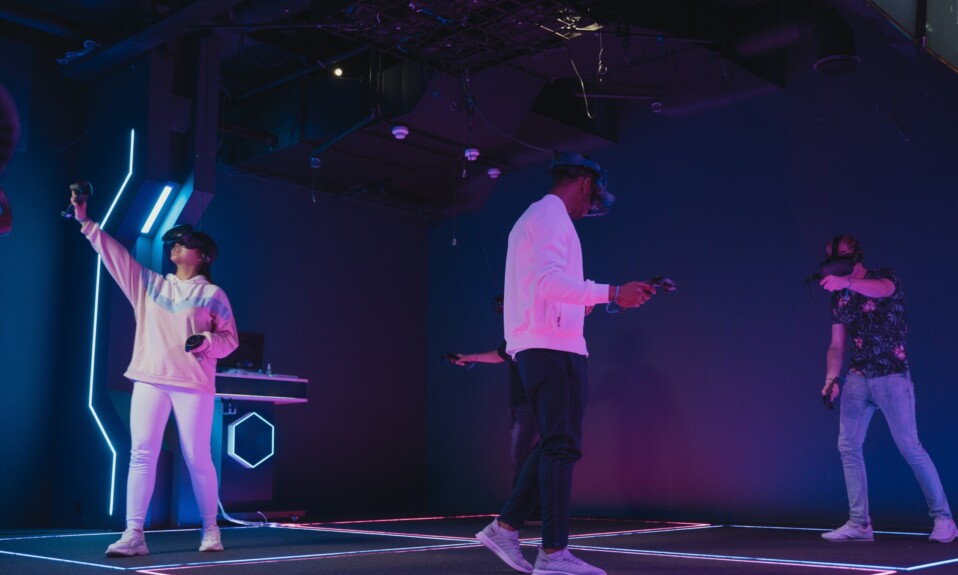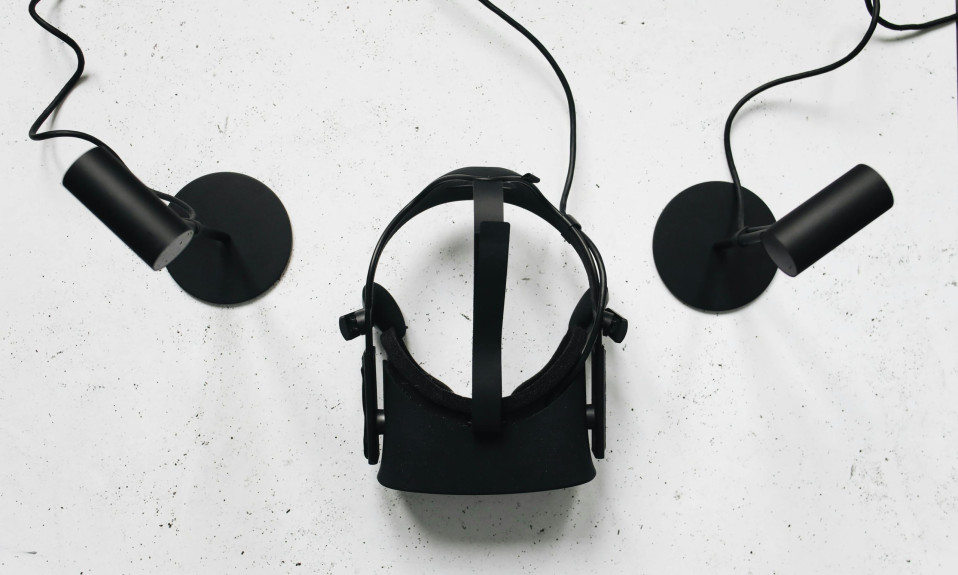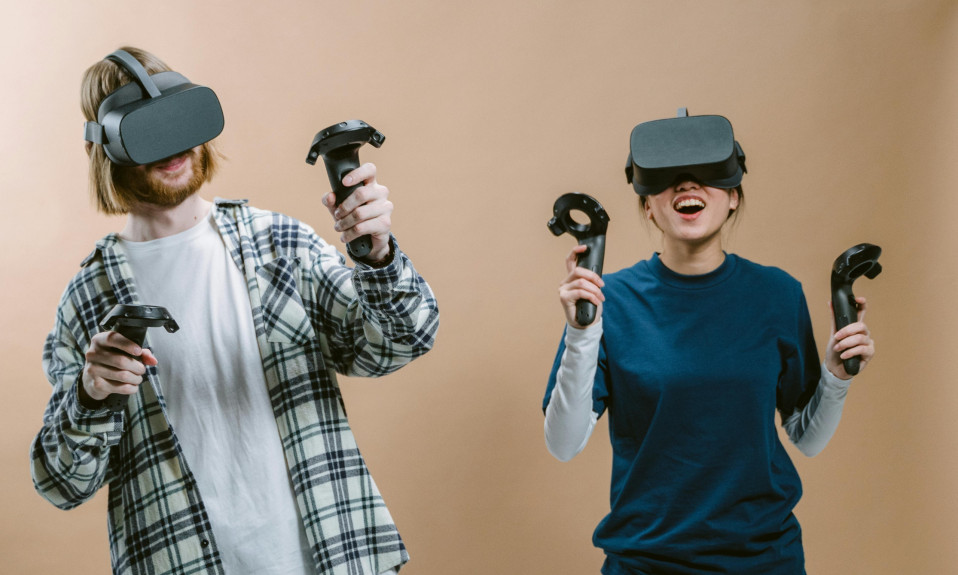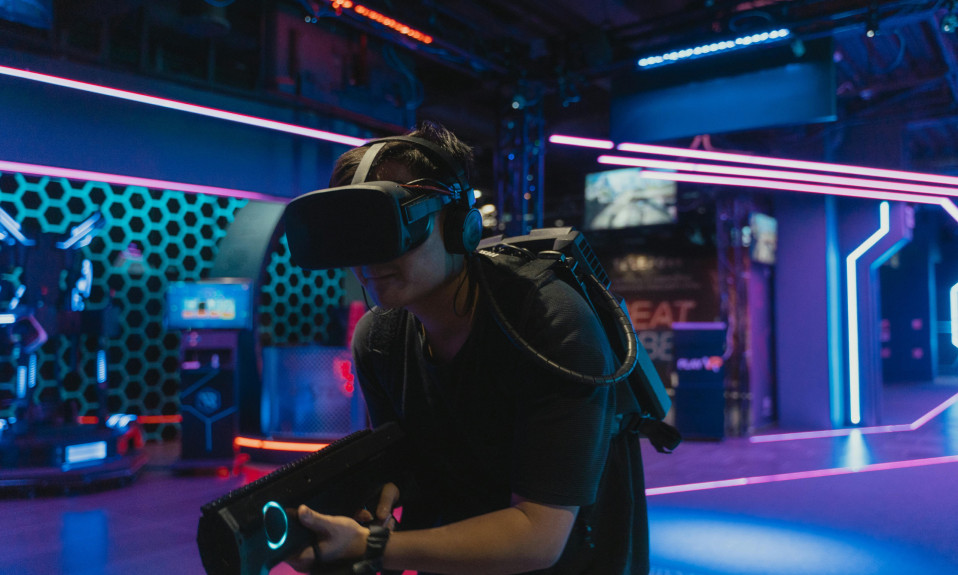The metaverse is a jigsaw puzzle with scattered pieces, each representing a unique challenge that requires a solution.
With each problem solved, we take a step closer to the fundamental and unchanging principles of immersive virtual and augmented reality experiences that define the metaverse.
Omnidirectional treadmills are a critical component of this puzzle, striving to bridge the gap between locomotion in the real world and virtual reality.
These devices allow 360-degree or omnidirectional movement in physical reality and simulate user movements using trackers and sensor technology.
If you aren’t familiar with omnidirectional VR treadmills, check out our comprehensive guide on virtual reality treadmills and the future of locomotion within the metaverse.
This article compares and contrasts two popular consumer-grade omnidirectional treadmill simulators, the Virtuix Omni One and the Kat Walk C2+ treadmill.
Without further ado, let’s get started.
I do not want a discount, said no one ever! Upgrade your VR setup today with top-tier accessories—use code META20 for 20% off + free shipping on orders over $15. Level up your VR experience now ➡️ Shop & Save!
Quick Navigation
What Are Omnidirectional Treadmill Simulators?
Omnidirectional treadmill simulators are peripheral devices that enable users to move in any direction within virtual reality by simulating physical motion on a low-friction stationary locomotion interface.
These devices capture users’ movements using sensors and foot trackers, then map these activities to their avatars in virtual reality.
Omnidirectional treadmill simulators employ strap-on safety harnesses to secure users within the confines of the treadmill base to prevent potential safety hazards.
VR treadmills such as the Virtuix Omni One, the Kat Walk C Series, and the SilverCord-VR fall into this category of omnidirectional treadmills.
Which Omnidirectional Treadmill Reigns Supreme? The Kat Walk C2+ Vs. The Virtuix Omni One
There are many similarities between the Kat Walk C2+ and the Virtuix Omni One VR treadmill, and this comparison will begin by highlighting their most prominent features.
Afterward, we compare their distinct features, characteristics, accessories, pricing, and the overall experience of users who have used at least one of the treadmills.
Points will be awarded for each category, leading to our final verdict at the end of this comparison.
Let’s delve right in.
| Features | Kat Walk C2+ | Virtuix Omni One |
| Starting Price | $1,399 | $2,595 |
| VR Treadmill Base | Yes | Yes |
| Haptic Feedback System | Yes | No |
| Safety Harness | Yes | Yes |
| Foot Trackers | Yes | Yes |
| Adjustable Friction Level | Yes | No |
| Restrictive Movement | More Restrictive | Less Restrictive |
| Seat Compartment | Yes | No |
| Headset and Hand Controllers | No | Yes |
| Supports Multiple VR Headsets | Yes | No |
VR Omnidirectional Treadmill Base or Locomotion Interface
Both omnidirectional treadmills have a similar base or low-friction locomotion interface that enables users to walk, crouch, jump, or run in virtual reality using specialized shoes.
Unlike the Omni One, the Kat Walk C2+ includes a haptic feedback system on the base of its treadmill for an improved sense of immersion.
However, locomotion in virtual reality has a slightly different twist than in the real world, which leads us to the most crucial omnidirectional treadmill accessory.
I do not want a discount, said no one ever! Upgrade your VR setup today with top-tier accessories—use code META20 for 20% off + free shipping on orders over $15. Level up your VR experience now ➡️ Shop & Save!
Specialized Shoes with Dedicated Foot Trackers
To accurately model user movement on omnidirectional treadmills and simulate such motion in virtual reality, specialized shoes fitted with foot trackers are employed.
Both treadmills include pairs of special shoes and foot trackers attached at the top or bottom of these footwear.
The sensitivity of foot trackers on the Virtuix Omni One and the Kat Walk C2+ omnidirectional treadmill is relatively similar based on user feedback and experiences.
However, significant mental effort is required to make foot trackers work accurately, as users have to consciously glide and apply more physical effort while walking or running on the treadmill base.
The Kat Walk C2+ also provides anti-slip straps and a mechanism that allows users to adjust the level of friction between the shoe and treadmill base to suit their preferences and experience levels.
Safety Harness or Vests For Back Support
Both omnidirectional treadmill simulators include strap-on safety harnesses or vests that provide back support and keep users within the confines of the treadmill.
The back support system for the Omni One VR treadmill makes movement less restrictive and more flexible for performing a wide range of tasks such as running, jumping, and crouching.
The Kat Walk C2+ includes a detachable seat compartment, making experiences like sitting or driving various vehicles in virtual reality more feasible.
Overall, strap-on safety harnesses and vests provide body forces such as inertia and prevent safety hazards like slipping and falling on omnidirectional treadmills.
I do not want a discount, said no one ever! Upgrade your VR setup today with top-tier accessories—use code META20 for 20% off + free shipping on orders over $15. Level up your VR experience now ➡️ Shop & Save!
Compatible VR Headsets and VR Game Platforms
Omnidirectional treadmills compatible with multiple VR headsets allow users to enjoy and explore a wide selection of games and experiences in virtual reality.
The most distinguishing feature between the Kat Walk C2+ and the Virtuix Omni One is the number of headsets integrated with each treadmill seamlessly.
The Virtuix Omni One is currently only compatible with the Pico NEO 3 Pro VR Headset, which utilizes its custom software but limits the number of experiences for users.
The Kat Walk C2+ supports multiple VR headsets like the Meta Quest and the HTC Vive and VR applications like SteamVR and Oculus PC.
Seamless integration with various platforms and VR headsets offers flexibility to users and provides optionality among several virtual reality experiences.
Pricing: The Kat Walk C2+ Vs. The Omni One VR Treadmill
The Kat Walk C2+ starts at $1,399, which includes the VR treadmill core (locomotion interface), back support system, safety harness, friction-adaptive shoes, and a pair of foot trackers.
In contrast, the Virtuix Omni One starts at $2,595, which includes the VR treadmill core, back support system, safety harness or vest, a pair of shoes, the Pico NEO 3 Pro VR Headset, hand controllers, foot trackers, and a cleaning kit.
Both treadmills have similar accessories, but the main difference, which accounts for the cost of the Virtuix Omni One, is the inclusion of a VR headset and hand controllers with the purchase.
Users who purchase the Kat Walk C2+ may have to buy a VR headset and hand controllers separately. However, the Kat Walk C2+ is compatible with multiple VR headsets, as earlier mentioned.
Conclusion and Final Verdict
Bridging the gap between locomotion in the real world and virtual reality provides a greater sense of immersion and tackles underlying health concerns in VR, such as motion sickness caused by cognitive dissonance.
While the technology of omnidirectional treadmills is still under development, the use of omnidirectional treadmill simulators, such as the Kat Walk C2+ and the Virtuix Omni One VR treadmill, appears promising.
Both treadmills have their advantages and disadvantages, and ultimately, the best choice for consumers depends on individual preferences.
We hope this review and in-depth comparison, provides valuable information to help you make an informed decision when purchasing an omnidirectional VR treadmill.
I do not want a discount, said no one ever! Upgrade your VR setup today with top-tier accessories—use code META20 for 20% off + free shipping on orders over $15. Level up your VR experience now ➡️ Shop & Save!

